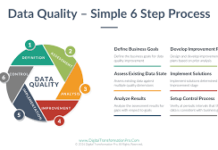You’re past due on some debts and are now being contacted by a company called MRS Associates. You assume it’s related to your delinquencies but in today’s topsy-turvy world, you aren’t sure. Just what does MRS Associates do, you ask? Read on for the answer and more.
What is MRS Associates?
Well, you likely guessed right: MRS Associates is a collection agency. Sure, it touts itself primarily as an account receivables management company, but in essence it’s out to collect debts. In fact, it’s one of the country’s biggest collection agencies.
The New Jersey-based firm purchases collection accounts from auto finance companies, commercial retailers, consumer finance companies, credit unions, and banks. It also runs down delinquent student loans.
Also Read: Why Financial Literacy Can Help You Overcome Debt Problems: Review By Ladder Advisors
How Do I Handle Them?
First, you must protect yourself. The debt collector is not going to help you do anything that doesn’t result in it getting cash. So, when it comes to MRS Associates – how best to manage them, take the following steps:
- Determine the statute of limitations. Two factors are key to how you react to contact from MRS Associates: the age of your debt, and the applicable statute of limitations.
If the statute of limitations has expired, a collection agency may not legally file a lawsuit against you. After that, collectors can ask you to pay, but they cannot threaten or sue you.
Answer the following to determine the statute of limitations on your debt:
- Find out when your debt entered the delinquent zone or when you made your last payment. Scour your records but if you don’t have them, call the original creditor’s customer service department and see whether it does. Then, pull your credit reports from TransUnion, Experian, and Equifax to see whether the delinquency date is accurate.
- Determine what the statute of limitations is in your state for your type of debt. You can get this info online.
- Determine whether the statute of limitations has expired. Note that the statute of limitations clock starts when the debt is deemed delinquent. To learn whether you’re covered by the statute, add 30 days to your last payment due date in addition to the number of years in your state’s statute.
If the statute of limitations has expired on your debt, send MRS Associates a cease communications notice to put an end to the company’s collection calls. If the statute of limitations has not expired, proceed to the following step.
- Validate Your Debt. You have 30 days to do this after MRS Associates contacts you, so move quickly. It behooves you to take this action because the debt industry can only validate about half of its accounts. If MRS cannot validate your debt, it has nothing on which to base collections. And in most states, collectors will get in legal trouble if they go to court anyway to make you pay.
If the debt is validated and the statute of limitations has not expired, read on.
- Settle with MRS Associates. Either collection companies purchase collection accounts or are enlisted by original creditors to collect. Either way, Job One is to get what it can from you.
Usually, collection agencies purchase accounts for anywhere from one cent to 10 cents on the dollar. It’s unclear what the average price MRS Associates is, but you can expect your settlement with MRS Associates to range from 40 to 60 cents on the dollar. Try to negotiate at the end of the week or month, since that’s when collection agents, most of whom are paid on commission, earn extra pay to make deals.
What does MRS Associates do? Your instinct was likely right: they’re collectors. But knowledge is power, and now you know how to deal with them. Here’s to returning to a debt-free life.
Also Read: Getlei™ Takes the Lead in Issuing Lei Codes to Fintech and Government Entities for…











